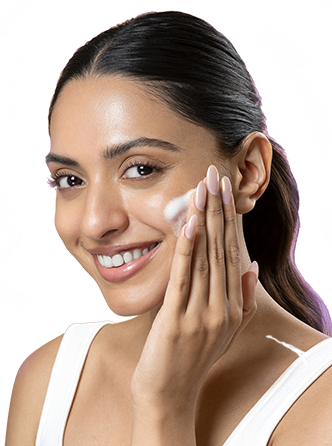
AHAs, BHAs, and PHAs are chemical exfoliants and are all different types of acids that are used in skincare products. All 3 of these types of acids exfoliate skin and help in renewing skin cells. While they are called ‘chemical exfoliants’, many of them are derived from plants or fruit extracts.
Beauty is in the eye of the beholder… or the people who know which type of skincare acid they should use. This article will help you learn more about these chemical exfoliants, and which one is best for you depending on your skin type and the problems that you’re facing.
AHA (Alpha Hydroxy Acid)
AHA stands for Alpha Hydroxy Acid. AHAs are water-soluble and penetrate easily into your skin. They are great for normal, dry, and mild hyperpigmentation. They also promote collagen and blood flow making your skin firm. These groups of acids are naturally found in fruit, milk, sugarcane, etc. The most common variations of AHAs used for skincare include:
1. Glycolic Acid - Very powerful in stimulating your skin’s regeneration process. It has a small molecular formula allowing it to penetrate deeper into your skin. You can find glycolic acid in our green tea range of plums.
2. Lactic Acid - Beneficial to lock moisture in your skin due to its humectant properties. It also protects against harmful bacterias due to its antimicrobial properties
3. Mandelic Acid - Rich in antioxidants along with its antibacterial properties that make it a great option for people with sensitive skin and acne.
4. Malic Acid - Found in many fruits and vegetables, it is commonly associated with apples. An apple a day keeps the pimples away. Malic acid is the core ingredient of many beauty products that are based on apple cider vinegar.
5. Citric Acid - As per the name, it is derived from citrus fruits and used to even out the skin tone, regulate the pH levels of your skin, and also act as a preservative to stop sebum mixed with dead skin cells to oxidize and forming into blackheads.
6. Tartaric Acid - Derived from grapes it has the power to moisturize the skin and boost healing properties.
Benefits of AHA
- Keeps your skin hydrated by trapping moisture, giving you radiant skin.
- Extremely useful for treating dry or mature skin
- It helps reduce pigmentation, damage from the sun and even out your skin tone.
- Minimises the appearance of fine lines, wrinkles, and scars.
BHA (Beta Hydroxy Acid)
BHA stands for Beta Hydroxy Acid and is also commonly known as salicylic acid. It is a naturally occurring acid in white willow trees and has very good anti-inflammatory properties.
Benefits of BHA
- BHA reduces clogged pores as it dissolves the oil in your skin
- BHAs are oil-soluble and penetrate deeper into the skin even past the oil barrier. As a result, they help pores stay unclogged. It is also great to fight against acne and blackheads.
- The anti-inflammatory and anti-bacterial properties soothe the skin and decrease redness caused by any irritation.
- Reduces the visibility of wrinkles and pigmentation from sun-damaged skin.
- It can also help with bumpy skin
PHA (Poly Hydroxy Acid)
PHA stands for Poly Hydroxy Acids. These acids have a larger molecular structure than AHAs that penetrate slower and don't exfoliate as powerfully as acids with smaller molecular structures.
These acids are natural humectants, meaning they attract water and help your skin absorb moisture easily to keep it hydrated.
Benefits of PHA
- Capable of locking in plenty of moisture.
- Works like an antioxidant
- These types of skincare acids are ideal for people with sensitive skin and skin conditions like eczema and rosacea.
FAQs
Q1. Which is better, AHA, BHA, or PHA?
None is really better than the other. The answer completely depends on your skin type and skin problems. Each of them is suited better for different skin types and their common problems. You can also look for products with all of them together like in our 10% AHA + 5% PHA + 0.5% BHA Exfoliating Peel with Green Tea.
Q2. Can I use BHA and PHA together?
Yes, you can combine products containing AHAs, BHAs, and PHAs in your skincare routine. But you must consult a skin specialist first to avoid causing any kind of serious damage to yourself. Many skincare brands cleverly combine these different acid groups at different concentration levels in their cosmetic formulations.
Q3. Does PHA cause your skin to sting?
PHAs are larger in molecular size than AHAs and BHAs, which means that they're only able to exfoliate the outer layers of the skin. This makes it gentler on the skin without any burning or stinging sensation.
Q4. Can I use alpha hydroxy acid every day?
Yes, alpha hydroxy acids are suitable to be used every day as exfoliants for your skincare routine but it is advisable to start off slow and use it 1-2 times a week just to see how your skin handles it.


















